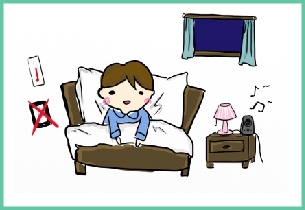
Sleep problems are common among children with Autism Spectrum Disorder (ASD)
Problems with sleep affect children's daily functioning, school performance, and may contribute to problem behaviours.
This project is funded by Knowledge Exchange (KE). It aims to provide sleep-related and sleep hygiene knowledge and for parents, so that parents could handle the sleep problems of children with ASD in a more effective way.
Through this website, we would like to introduce:
- What ASD is
- The relationship between ASD and sleep problems
- Whether your child may have sleep problems
- How to reduce a child's sleep problems
- How to improve a child's sleep quality
Some sleep myths
A lot of people have misperceived sleep as a passive, static process, or have even believed that “snoozing is losing” – they may think that sleeping is a waste of time and have associated sleep with laziness. In fact, sleep takes up a crucial part of our life. When we are asleep, although our muscles are relaxed, our brain is still active.
Extensive research throughout the years has found that a lot of important physical processes occur during sleep, such as repairing and renewing of tissues and cells, memory consolidation, physical growth and regulation of metabolism. As of today, we are sure that sleep plays an important role in maintaining physical and mental health, especially in children and adolescents.
How do we support ASD children’s sleep?
Sleep problems are common among children with ASD. These problems may affect children's daily functioning, school performance, or may even contribute to problem behaviours. This website aims to provide parents with sleep-related and sleep hygiene knowledge, so that parents could handle their ASD children's sleep problems in a more effective way.






